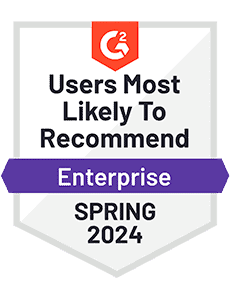Outcomes that matter
Trusted by more than 10,000 customers
Powerful products and proven results
- Contact Center & Customer Service
- Content Lifecycle Automation
- Digital & Mobile Marketing
- Knowledge Management
- Sales Productivity
United Wholesale Mortgage ignites agent productivity and increases NPS with InGenius
InGenius and Salesforce Omni-Channel help increase cases handled by 50%.

TxMultilisting depends on InterFAX cloud fax to connect patients with life-saving care
With 58 disjointed kidney transplant lists across the country, TxMultilisting has developed and coordinated a nationwide database of waiting lists with Upland InterFAX.

Incisive Media gets more email to the inbox with deliverability workshops
Through Adestra Deliverability Workshops, Incisive Media was able to identify the influencing factors affecting its sender reputation and take actionable steps to improve email results.

Nestlé ensures employees have the technology required to effectively do their job
Nestlé reduced the demand on its IT customer support teams and improved the end user experience with RightAnswers.

BT made Altify a cornerstone of its sales transformation
Altify helped BT improve its qualification process, organize the account planning approach, and focus on deals that provide the most impact.

Analyst resources to support your decision
REPORT





























